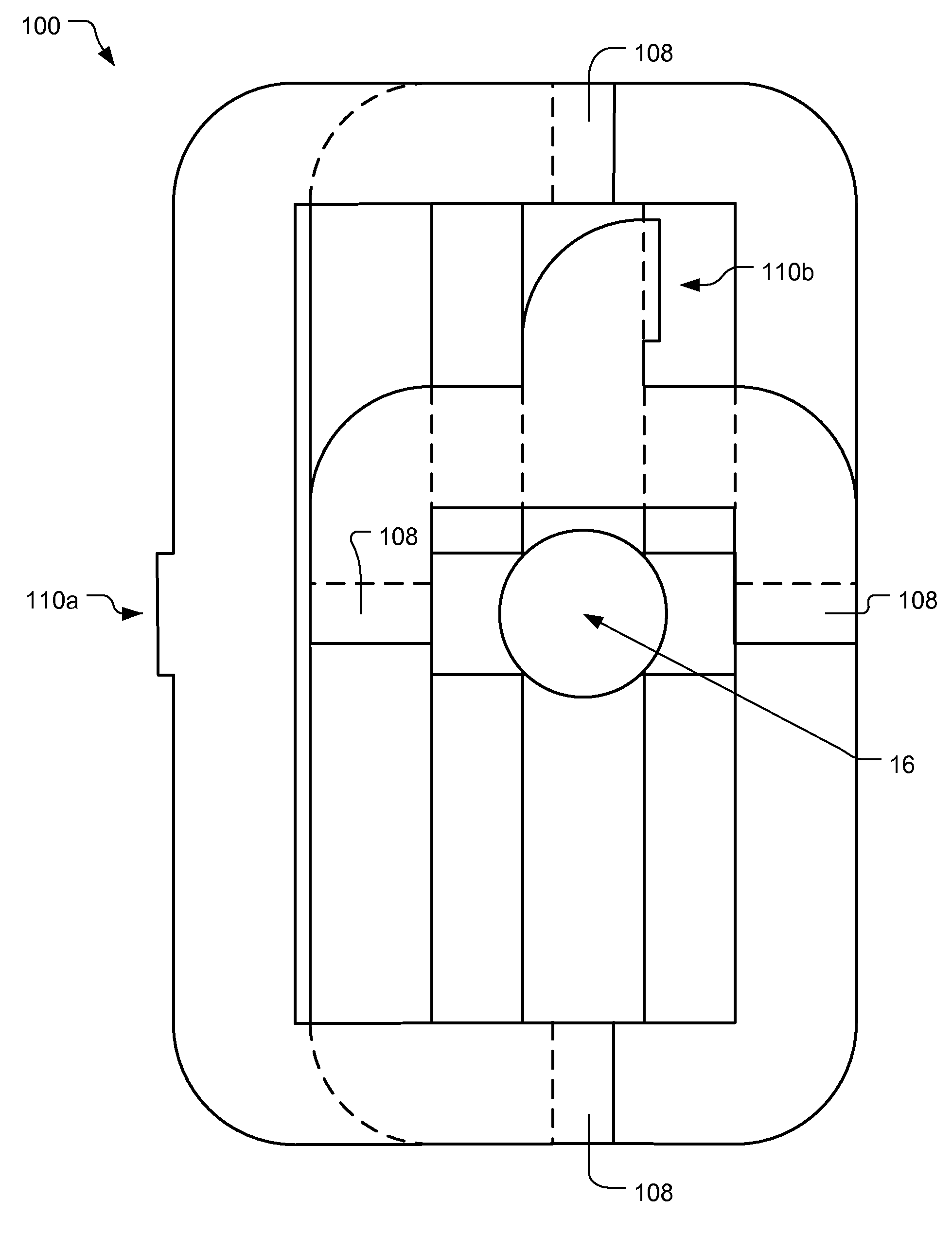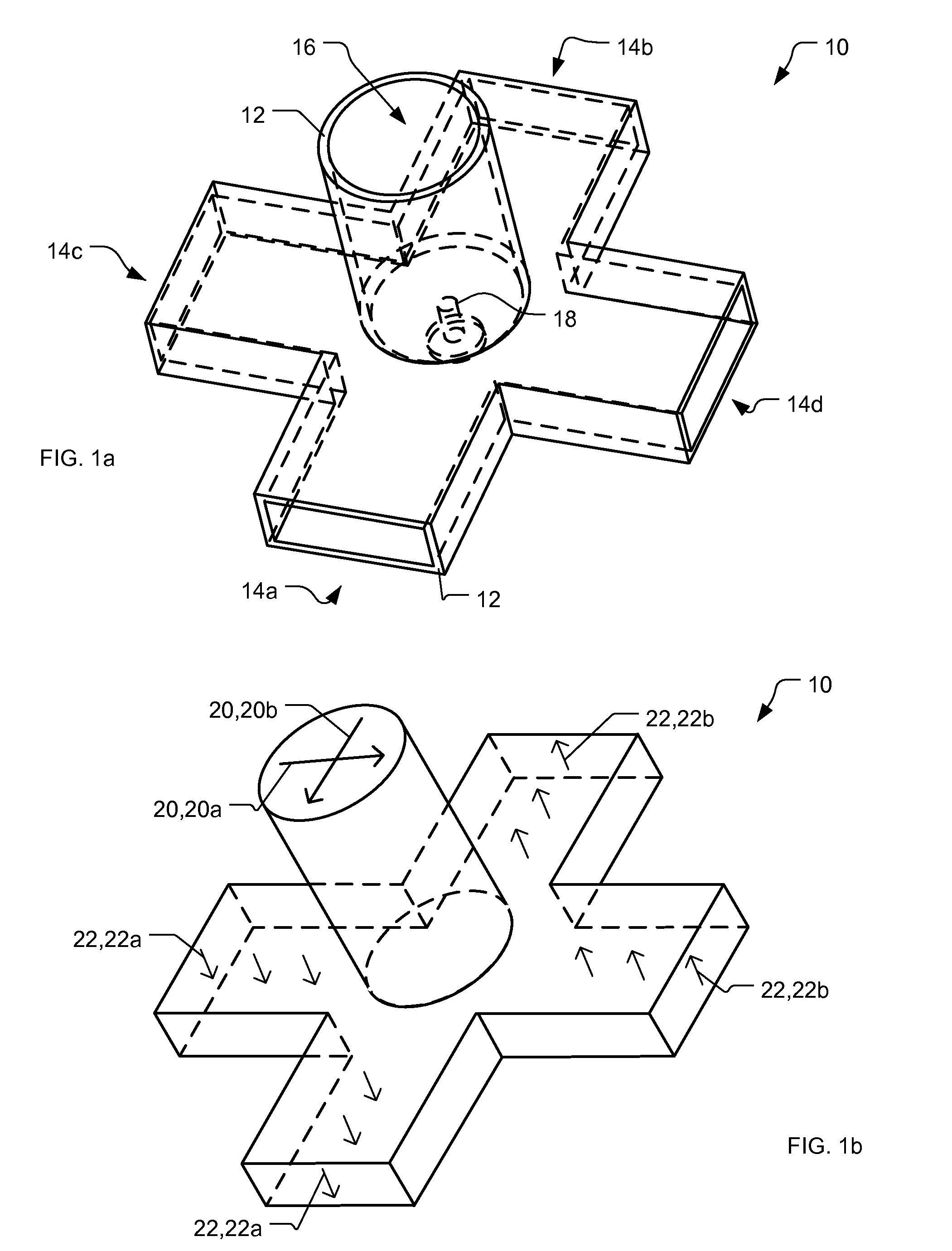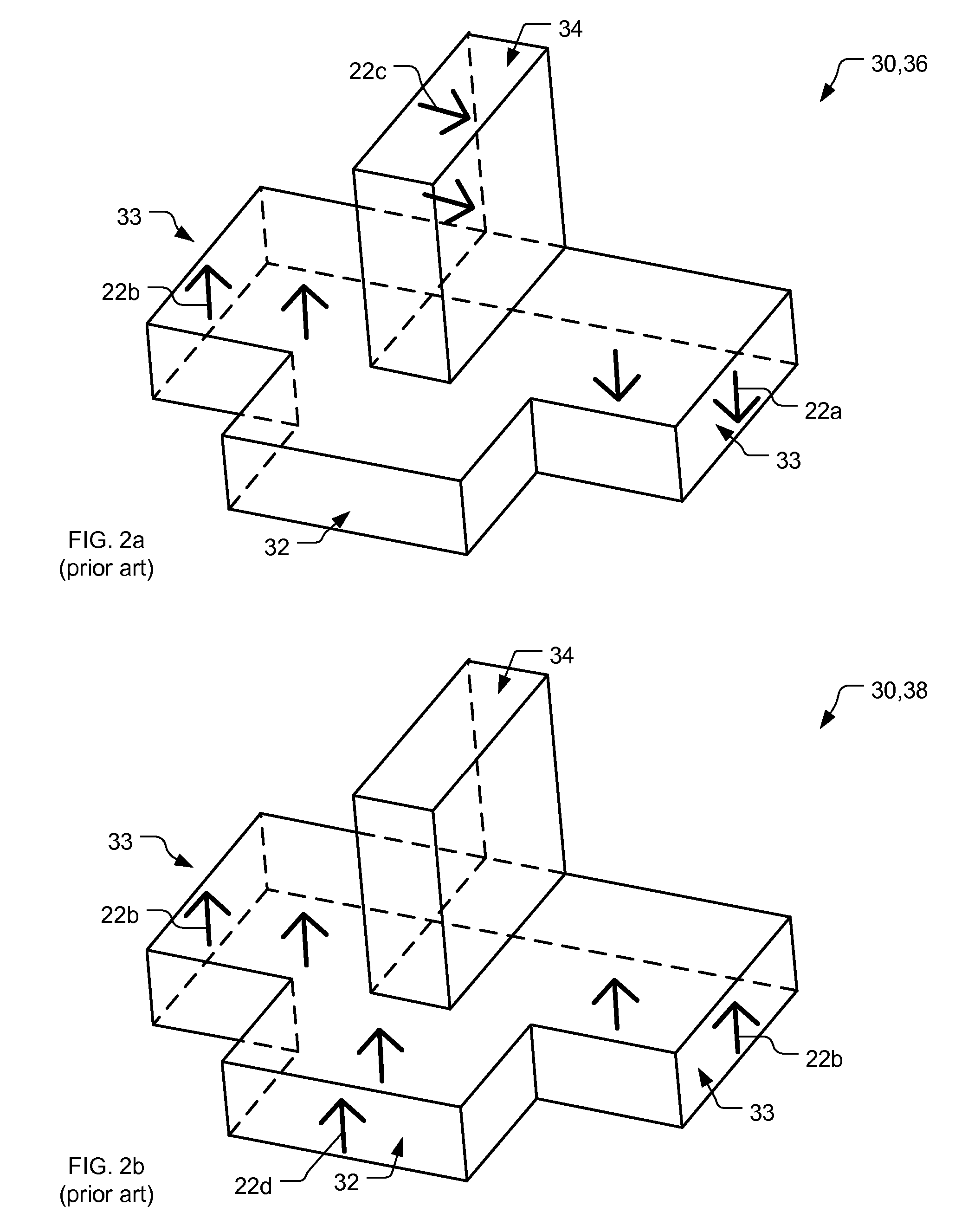Orthomode transducer
a transducer and orthomode technology, applied in the direction of coupling devices, waveguide type devices, basic electric elements, etc., can solve the problems of insufficient isolation, ineffectiveness, and insufficient omts of today, and achieve low vswr, high mode purity, and high power handling capability.
- Summary
- Abstract
- Description
- Claims
- Application Information
AI Technical Summary
Benefits of technology
Problems solved by technology
Method used
Image
Examples
Embodiment Construction
[0029] A preferred embodiment of the present invention is a waveguide orthomode transducer (OMT). As illustrated in the various drawings herein, and particularly in the view of FIG. 4a, preferred embodiments of the invention are depicted by the general reference character 100.
[0030] Briefly, the inventive OMT combines connecting waveguides as needed, a turnstile junction, and four hybrid tees functioning as both H-plane and E-plane power dividers / combiners on a first layer, and connecting waveguides as needed and two H-plane T-junctions or hybrid tees with terminated E-ports functioning as H-plane power dividers / combiners on a second layer. A waveguide port is provided on the first layer and two polarization ports are provided on and oriented coplanar with the second layer, thus making the OMT notably compact. Furthermore, since there is no interference issue for the elements to avoid, they can be optimally dimensioned, and thus allow the OMT to achieve close to theoretical maximum...
PUM
 Login to View More
Login to View More Abstract
Description
Claims
Application Information
 Login to View More
Login to View More - R&D
- Intellectual Property
- Life Sciences
- Materials
- Tech Scout
- Unparalleled Data Quality
- Higher Quality Content
- 60% Fewer Hallucinations
Browse by: Latest US Patents, China's latest patents, Technical Efficacy Thesaurus, Application Domain, Technology Topic, Popular Technical Reports.
© 2025 PatSnap. All rights reserved.Legal|Privacy policy|Modern Slavery Act Transparency Statement|Sitemap|About US| Contact US: help@patsnap.com



